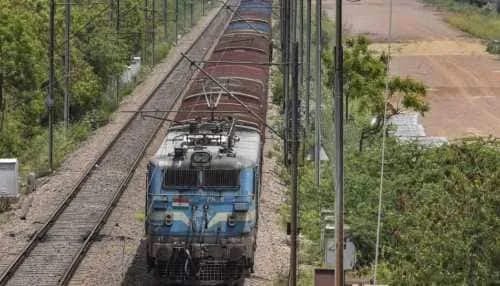Srinagar, August 09: The first loaded freight train rolled into Anantnag Railway Station on Saturday, marking a major milestone in the Udhampur-Srinagar-Baramulla Rail Link (USBRL) project, specifically with the operational start of the Banihal-Sangaldan-Reasi-Katra segment. This development is set to significantly boost Jammu and Kashmir’s transport infrastructure.
This historical development effectively brings the Kashmir rail network into the larger Indian Railways freight corridor, ensuring the ease of movement of goods from anywhere in the country directly into the valley.
The 272-kilometre-long Udhampur–Srinagar–Baramulla Rail Link (USBRL) project, now nearing full commissioning, spans Udhampur, Reasi, Ramban, Srinagar, Anantnag, Pulwama, Budgam, and Baramulla districts in Jammu and Kashmir.
A landmark in engineering, the project includes the world’s tallest railway bridge over the Chenab River in Reasi district, standing 359 metres above the riverbed and stretching 1,315 metres in length. It also features India’s first cable-stayed railway bridge across Anji Khad, with its deck positioned 331 metres above the riverbed.
This new connectivity will effectively give the region’s economy a major fillip through opening of new trade routes, lowering logistics costs for companies, assuring delivery of essential commodities throughout the year irrespective of weather, and consolidating regional connections into the national rail system.
Beyond its engineering feats, the USBRL has delivered substantial socio-economic benefits, generating over 5 crore man-days of employment and enabling the construction of more than 215 kilometres of approach roads, along with 320 small bridges and several tunnels. This infrastructure has significantly improved local connectivity and uplifted community livelihoods.
Safety remains a top priority, with the project adhering to global standards. Tunnels exceeding two kilometres are equipped with mechanical air ventilation and firefighting systems, while principal tunnels over three kilometres have dedicated escape tunnels totalling 66 kilometres.
Meanwhile, in light of ongoing rainfall, the State Disaster Management Authority (SDMA) has urged residents to avoid unnecessary travel, especially in landslide-prone areas, as emergency services remain on standby for quick restoration efforts.








